“The first rule of Fight Club is you do not talk about Fight Club.”
One of the most famous quotes from Chuck Palahniuk’s famous novel has become a saying that communicates the idea that all secret societies must be one thing overall: secret.
However, it was only a few hours before half the school was wondering what was going on with the AP English 12 students last month, when Mrs. Krell’s AP English 12 class went on an imaginative field trip to a dystopian society Krell named, “Melas Doy Tapis.”
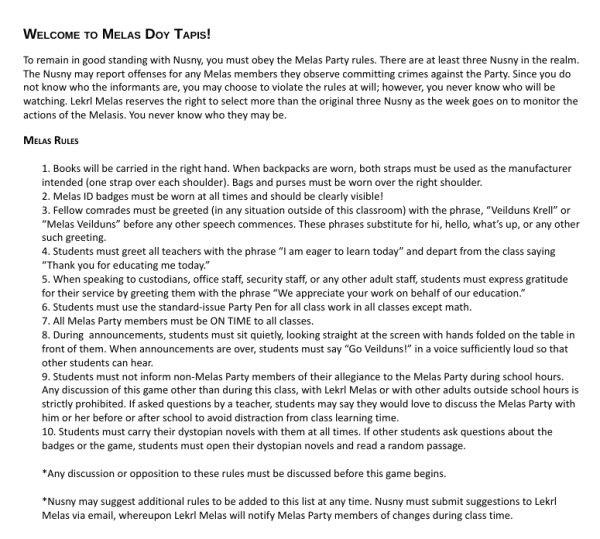
Her dystopian game was inspired by a conversation that took place during a Socratic Senimar on Dystopian Novels, after her students had finished reading The Handmaid’s Tale and Brave new World.
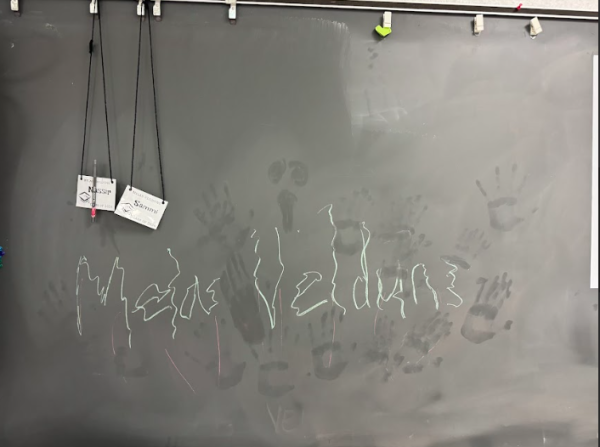
“I realized that students were struggling to see why people would conform to a society that they did not agree with. They thought it would be easy to rebel and start a revolution,” said Krell. “I wanted to immerse students in a little bit of the emotional/ethical/societal struggle required to rebel.”
Krell designed ten rules for her society members, called “Melas,” and then secretly started appointing students to act as spy informants called “Nusnis” who would inform her of anyone breaking the rules.
“If a member was reported for failing to follow the rules, then additional pages were added to their required essay. If informants did their jobs well, pages were removed from their final essay,” Krell explained.
All kinds of responses were observed following the presentation of the game rules.
“The project was presented in a way that made me want to follow the rules perfectly and to call out my classmates who didn’t follow the rules,” said senior Nassir Foster. “I was extremely excited to be better at the rules than my peers.”
Senior Phaedra Diacopoulos had a different perspective on the game’s introduction.
“She ominously passed out name tags to us with no explanation at first. That made me SICK… then she gave us the rules. I was so mad,” said Diacopoulos. “I went through all the stages of grief.”
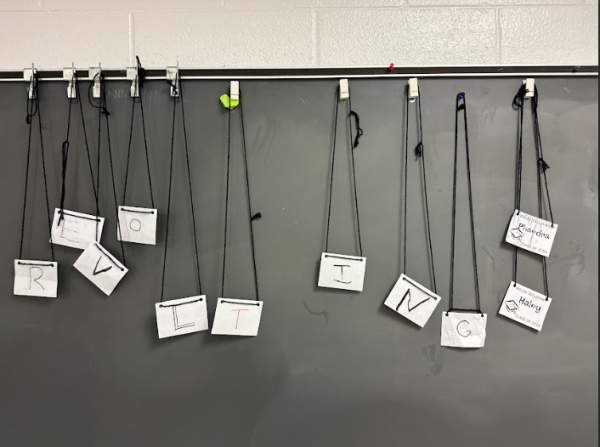
However, students quickly learned that there was no fact-checking system in place, so any rule reported broken could not be changed or fought regardless of whether the rulebreaker was truly guilty or not. In contrast, any rule bent may not be counted as broken depending on how one decides to bend the rules.
“I would come up with good loopholes and very strictly follow what was on the paper, despite being one of the known ‘rebels,’ making sure that no one could exploit them by assuming we would misinterpret the rules,” said Diacopoulos,who was just one of many students who decided to take the rules and make them their own.
For example, a mandatory pen was assigned to each student as they were told to use it for all paper assignments. Many students began taping their mandatory pen to a writing utensil of choice in order to justify the action of “writing with the pen” without actually using it. Other students decided going fully nonverbal was easier than complying with rule number three, which stated all students and staff at Salem must be greeted with the phrase, “Veilduns!”
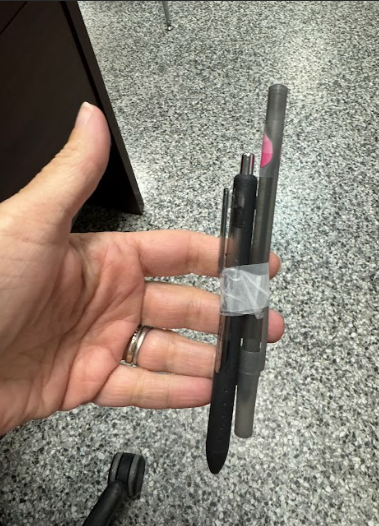
“Remembering to greet everyone in the right way was the hardest part for me because it made me so embarrassed to say the phrase,” said senior Haley Harrison. “The rules were overall easy, but the hassle of actually following them was the problem.”
As the week progressed, many more people around school became aware of what was happening in regards to the seemingly wacky behaviors of the AP English 12 students. Staff members, teachers, and even other students outside of the class started joining in as well.
However, Krell was not exactly prepared for just how invested her AP English 12 students and other spectators would become in the project.
“SO MANY THINGS occurred that I was not expecting. The thing that got me the most was how amazingly ENGAGED everyone was in the talking about/thinking about/processing of the whole game. I couldn’t have asked for more than that,” said Krell.
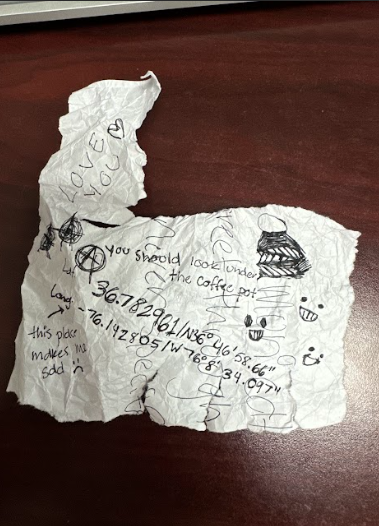
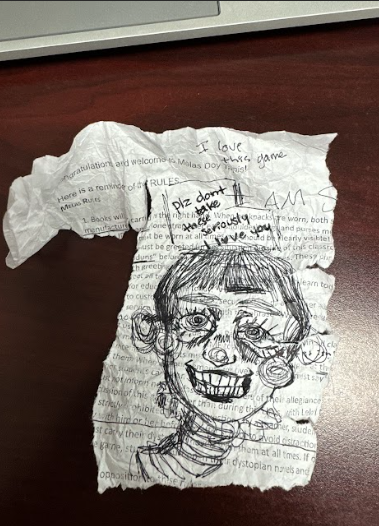
Krell’s lesson on the complexity of rebellion deepend with the student’s growing interest in adding a twist to her game. Secret meetings were held, stage revolts took place, notes were sent, a class group chat was made, and some students decided to just start openly defying her rules.
“I had the most fun during this project when I started to break the rules,” said Foster. “Going against the grain and being so involved in the game made the project seem much more than just a grade.”
Diacopoulos would make very “cryptic, passive-aggressive notes and find fun ways to send them to Mrs. Krell.”
“My favorite was tying one of the notes to a flower and giving it to her for Valentine’s Day. It was really fun coming up with what would go on the notes. I would send her on wild goose chases,” said Diacopoulos.
Needless to say, Mrs. Krell’s simple lesson on rebellion became an unanticipated chain of events..
“This project made me actually want to come to class and be an active participant,” Foster expressed. “If other classes could find ways to teach kids more out of the box and creatively like this project, kids would not only learn more but enjoy learning more.”
Diacopoulos agrees, believing that creative projects not only allow for more appreciation of a topic but make room for more critical thinking as well.
“Lessons like this allow for more exploration, experimentation, and context needed for learning comprehension because of the interactivity,” said Diacopoulos. “It allows students to make real-life connections to the materials they are learning about, rather than just the superficial memorization often seen.”
This isn’t the first creative project that Krell has introduced to her English class lesson plans, and she doesn’t plan on having it be her last, either.
“Creativity is as important as authenticity and engagement. I can’t stand a worksheet and I’m not fond of a lecture. I want students to learn by doing and by experiencing new things,” said Krell. “That often requires a little creativity! I hope my students learned a little about how hard it is to be a real rebel and lead a real movement for change. And I really hope they take what they learned and use it to improve our world!”
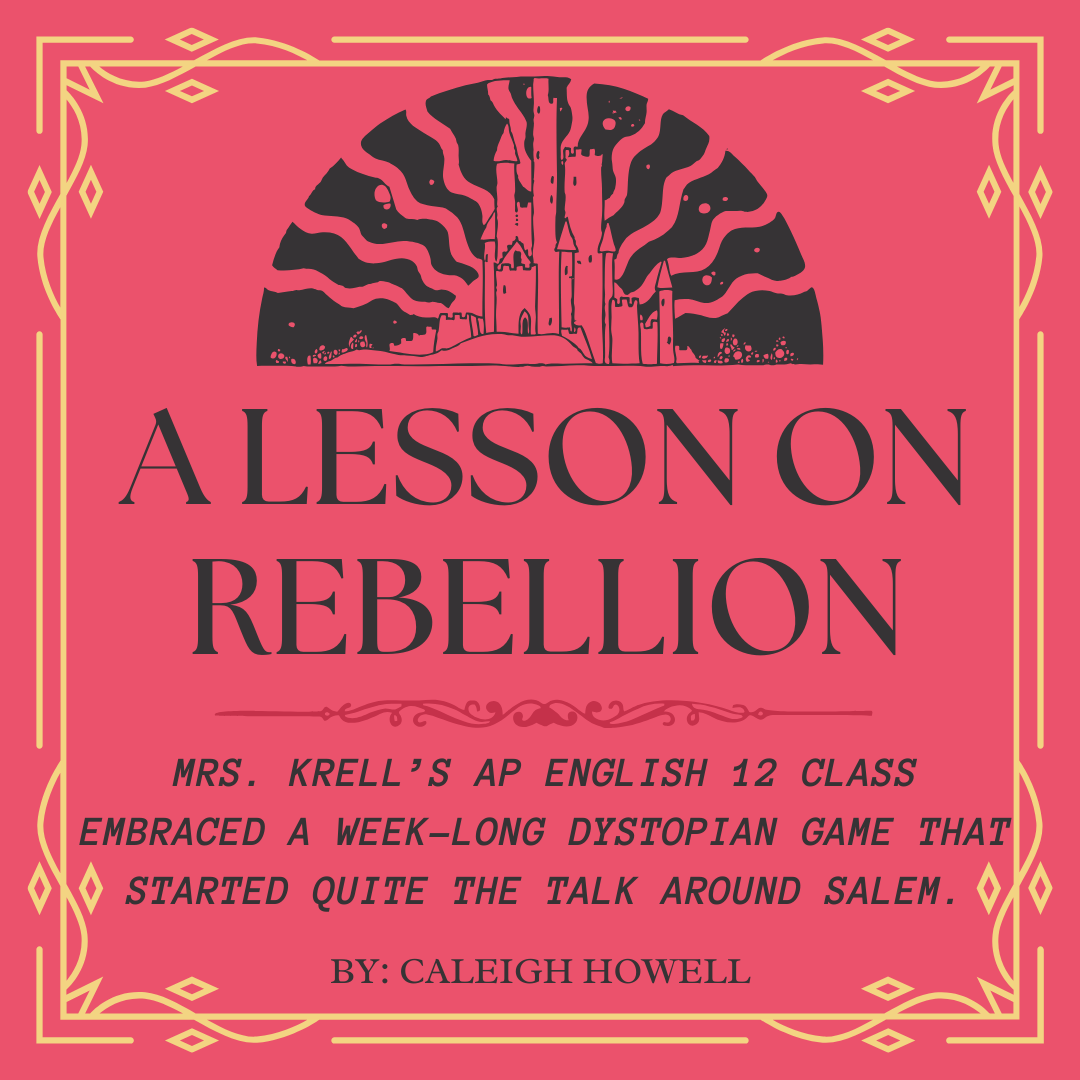
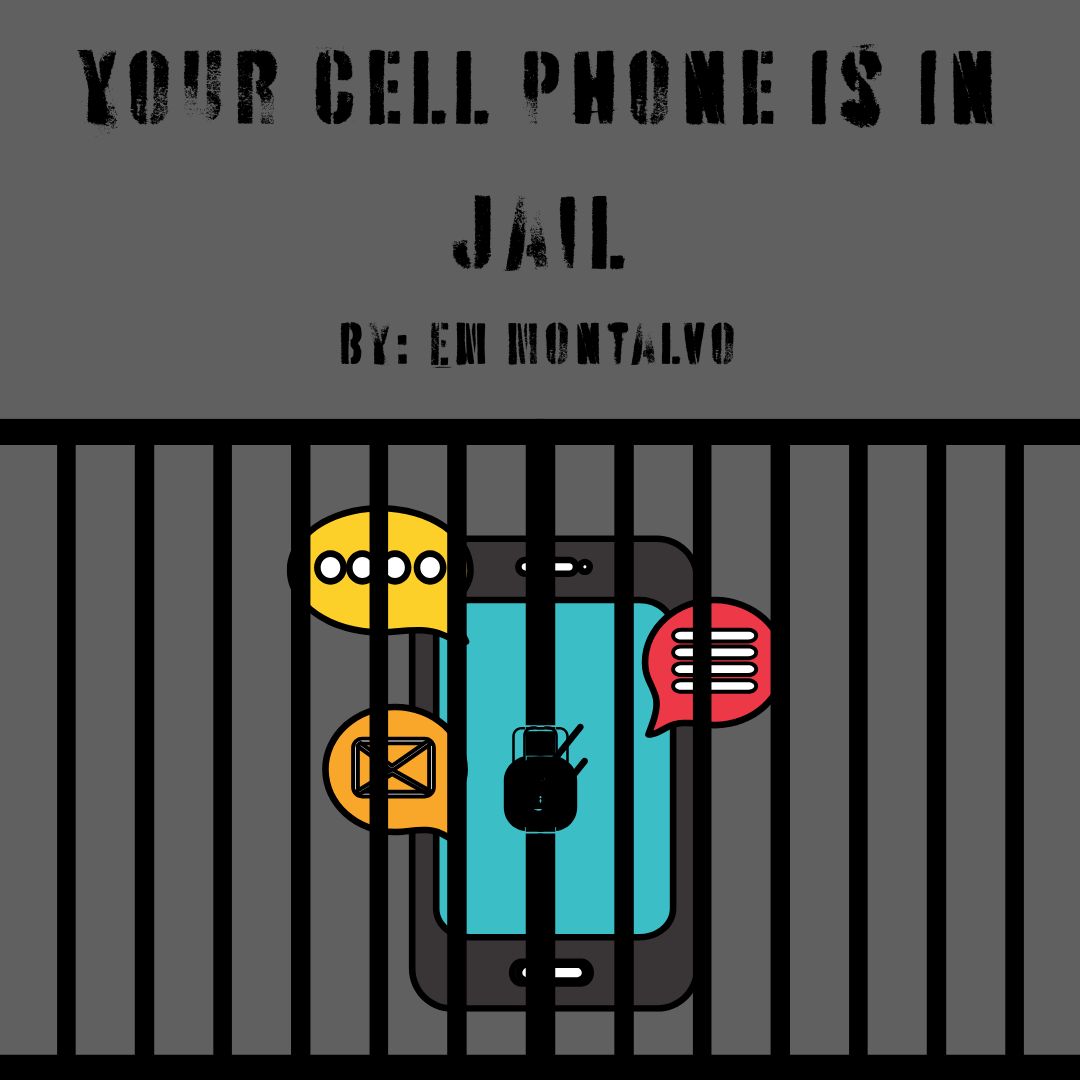


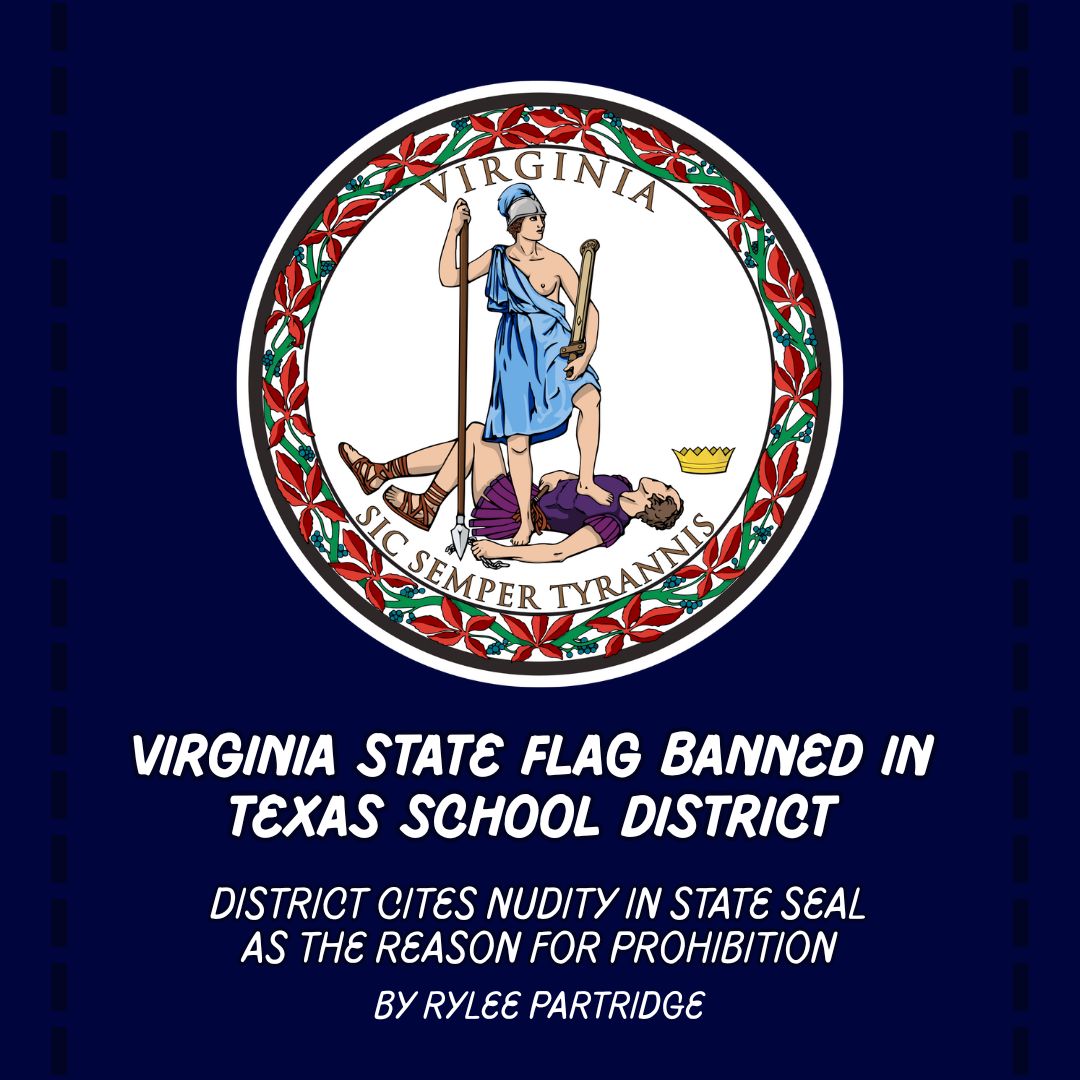

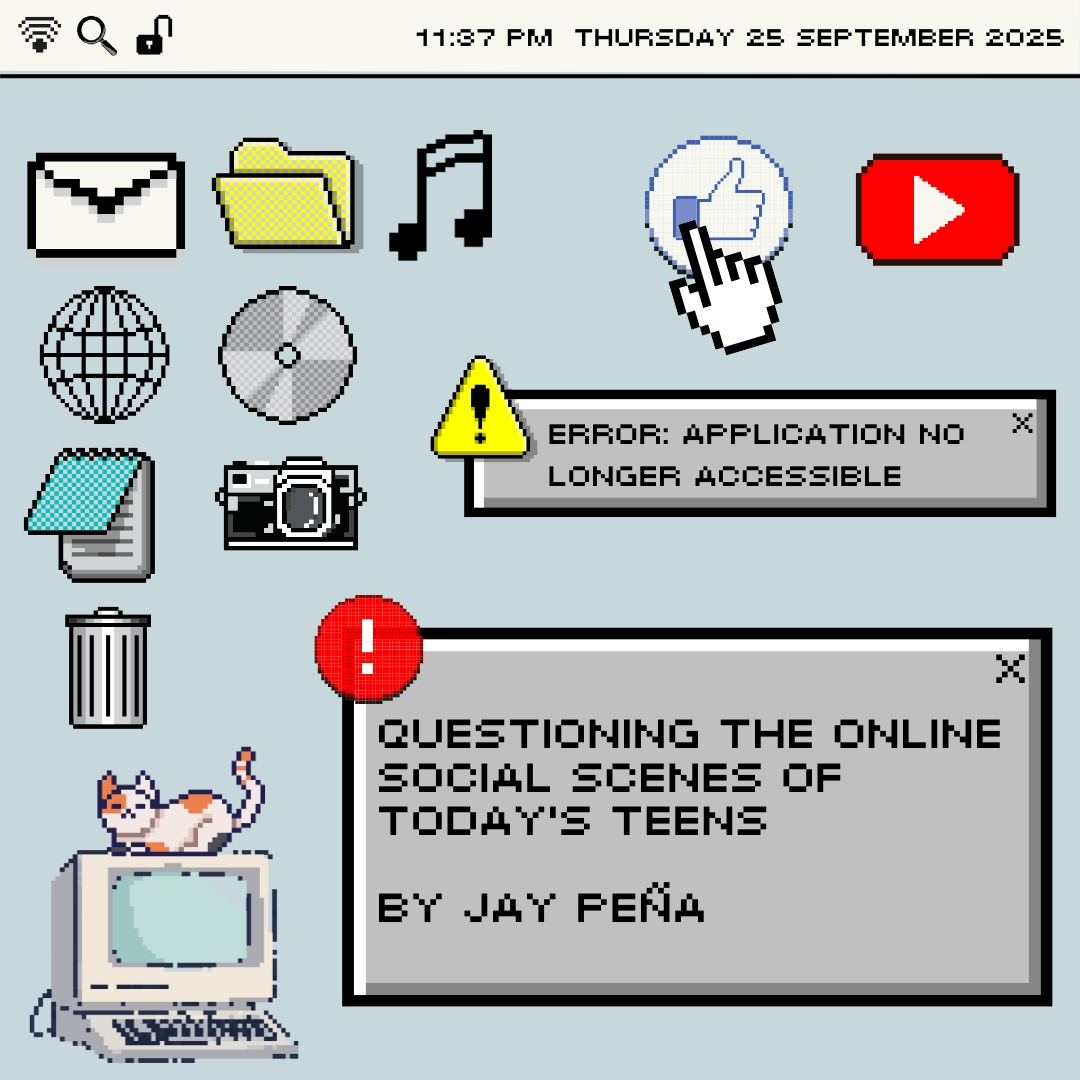

Ember • Mar 18, 2024 at 10:36 am
Seems quite fun and thought-provoking.